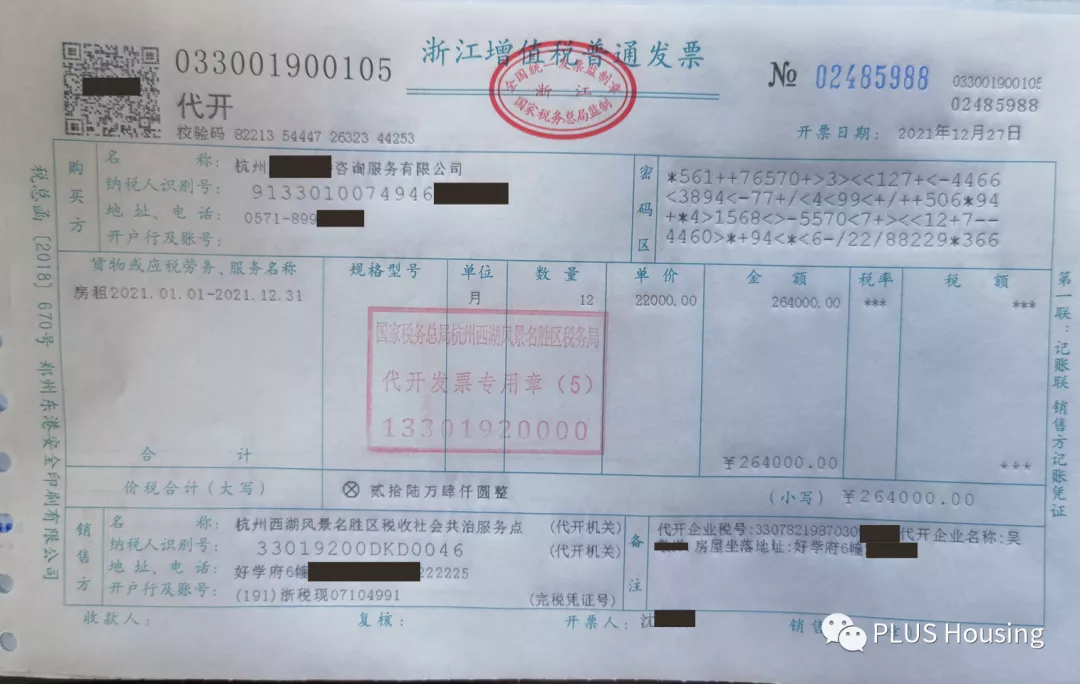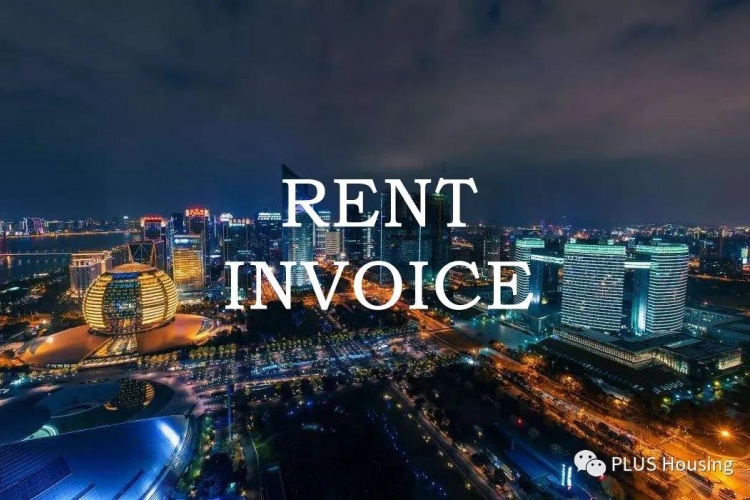01: What is a Rental Invoice?
A rental invoice (officially called "rent fapiao" or tax invoice in China) is an official tax document issued by tax authorities or qualified entities, used to confirm rental payment and fulfill tax obligations. Its core functions are as follows:
- For landlords: Rental income is part of taxable income, and the invoice serves as proof of tax declaration (landlords are legally obligated to pay tax on rental income).
- For tenants: It is a necessary accounting document for rent reimbursement (especially for corporate/school-sponsored tenants) and legal proof of rental payment.
- Tax inclusion note: If the quoted rent does not include tax, tenants who need an invoice must bear the corresponding tax cost (i.e., pay extra to cover the tax).

02: Preparations for Rental Invoice Application
1. Scan or take photos (for backup):
- Landlord’s property ownership certificate (or property purchase contract) and ID card.
- Tenant’s ID card (for Chinese citizens) or passport (for foreign tenants).
2. On-site materials to bring:
- Landlord’s original ID card + 1 copy; original property ownership certificate + 1 copy (to verify ownership).
- Tenant’s ID card/passport copy (waived if the lease is signed in the name of a company/school with an official stamp on the contract).
- Original lease contract + 1 copy (must include clear rental amount, term, and both parties’ signatures/seals).
- 3. Mandatory requirement: The landlord must be present in person (to confirm identity and consent to tax payment); proxy is not allowed unless authorized in writing.
- 4. Application form: Fill out the "Rental Invoice Application Form" (different forms apply to different districts in Hangzhou; ask the tax office staff for the correct version).
- 5. Tax payment method: Only bank cards are accepted (Alipay, WeChat, and cash are not allowed; ensure the card has sufficient balance for tax).
03: Key Elements of a Rental Invoice
- Rental amount: Must match the amount stated in the lease contract (cannot be higher or lower than the agreed rent).
- Lease term: The invoice period must align with the contract term (e.g., if the contract is Jan 1–Dec 31, 2024, the invoice period can be Jan 1–Mar 31, 2024, but not arbitrary).
- Invoice frequency: Confirm how often to apply (e.g., monthly, quarterly, or annually) — consistent with the tenant’s reimbursement cycle.
- Invoice title (recipient):
- Individual: Requires the tenant’s ID card/passport copy (title = tenant’s full name).
- Company/School: Requires the company’s full name, tax registration number (if applicable), and the lease contract must be stamped with the company/school’s official seal.
- Landlord’s contact info: The landlord’s valid mobile phone number is required (for tax office verification if needed).
04: Important Tips
- No arbitrary date skipping: The invoice period must be continuous. For example, if the first invoice covers Jan 1–Mar 31, the next must start on Apr 1 (cannot jump to May 1).
- No random changes to amount/title: Once the invoice title (individual/company) and amount are confirmed, they cannot be changed in subsequent periods. For example, an individual-title invoice cannot be switched to a company title later.
- Confirm company/school rules: Some enterprises/schools have specific requirements (e.g., invoice must include tax number, or only quarterly invoices are accepted) — confirm details with the finance department in advance.
- Mistake handling: If the invoice has errors (e.g., wrong title, amount), two solutions:
- Tax refund + re-application: Complicated process but no extra tax cost.
- Direct re-application: Simpler but requires paying tax twice (not recommended unless urgent).
- Multiple tenants at the same address: If multiple tenants from the same company share one apartment, confirm with the finance department: either one invoice with the total rent (under one tenant’s name) or separate invoices with split rents (each tenant’s name).
- Residential properties: 4.4% tax rate (e.g., ¥10,000 monthly rent → ¥440 tax).
- Commercial properties used for residential purposes (e.g., lofts, studios): 6.45% tax rate (e.g., ¥10,000 monthly rent → ¥645 tax).
*Note: Tax rates are subject to adjustment by Hangzhou’s tax authority — confirm the latest rate before application.
- PLUS Agency service fee: ¥300 per rental invoice (covers document preparation, on-site assistance, and communication with the tax office).
To avoid the complicated tax office process, tenants can apply for a rental invoice directly from qualified housing agencies (instead of the government tax office). The advantages: no need for the landlord to be present, no tedious document preparation, and faster processing. The tax rate ranges from 5% to 12% (varies by agency and property type), suitable for tenants who need invoices urgently.

Relevant SEO Keywords
English Keywords: Hangzhou rental invoice application、Hangzhou rental invoice materials、Hangzhou rental invoice tax rate、Hangzhou rental invoice tips、Hangzhou company rental invoice、Hangzhou expat rental invoice




